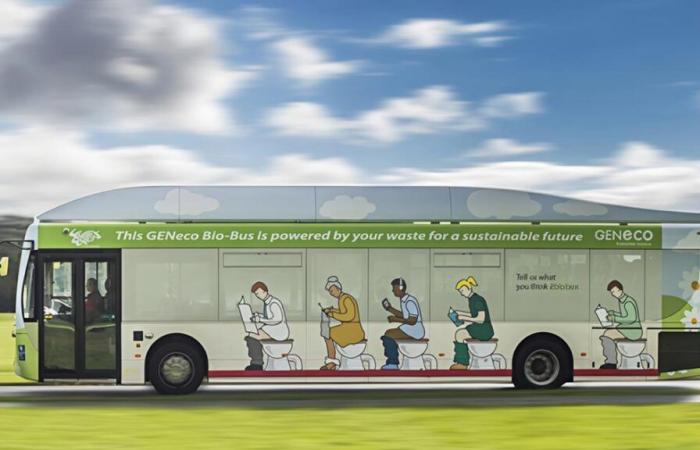A very particular bus has been traveling on the roads of the United Kingdom for some years now: it is a 40-seater ‘Bio-Bus’ which was immediately renamed the “poop-bus” by the Daily Telegraph and other British newspapers. In this case, subtle English humor has nothing to do with it, since this local public transport bus that travels in the city of Bristol, made by the GENeco company, is in fact powered by fuel obtained from food waste, and even human feces . In practice, to produce a tank of gas, necessary to travel about 250 km, the excrements of five people are enough for a year. The gas, produced from everything that ends up in the sewers and from the gasification of the biological material of the garbage, the so-called wet, is produced by the GENeco company in the Wessex Water sewerage plant.
The use of so-called biofuels, which can be of various kinds, one of which is biogas, represents an interesting segment for encouraging green mobility in large cities, and beyond. By transforming organic waste into energy, biogas buses constitute a significant innovation in the field of sustainable mobility. The biomass used in the production of biofuels absorbs CO2 during its growth, partially balancing the emissions generated by combustion.
But how to transform organic compounds into sustainable energy? Through special fermentation tanks and thanks to the collaboration of anaerobic bacteria. Once collected, food, agricultural or sewage waste is then subjected to “anaerobic digestion” in special plants, biodigesters. In practice, microorganisms decompose organic matter in the absence of oxygen, and once this fuel with high energy content and low environmental impact has been obtained, the biogas is stored and used to power special engines which emit a drastically lower quantity of CO2 into the atmosphere than to traditional fuels. In addition to reducing pollution, Bio-Buses contribute to a virtuous cycle of circular economy, making waste that would otherwise end up in landfills an energy resource. The numbers confirm it: the Bristol Bio-Bus, thanks to the treatment of approximately 75 million cubic meters of sewage and 35,000 tonnes of food waste per year, is able to eliminate up to 97% of greenhouse gas emissions.
The system helps in parallel with the disposal of waste in landfill, the volume of which is reduced. GENeco was the first company in the UK to introduce organically sourced gas into the national distribution network. The advantages are various, especially for the environment: biogas does not emit dangerous pollutants and this special bus does not release any toxic smoke. With a full tank, the Bio-Bus can travel up to 300 kilometers. According to researchers’ calculations, every year each of us produces enough organic waste and food scraps for a bus to travel about 30 km: this means that a family of 5 can contribute, on average, to a full tank of the vehicle. But it’s not just Bristol’s example: throughout Great Britain there are already other buses that run on biogas obtained from livestock waste, i.e. cow faeces. A solution which, in addition to reducing emissions and improving air quality, also promotes sustainable development and therefore local employment.
edited by Maurizio Costanzo






